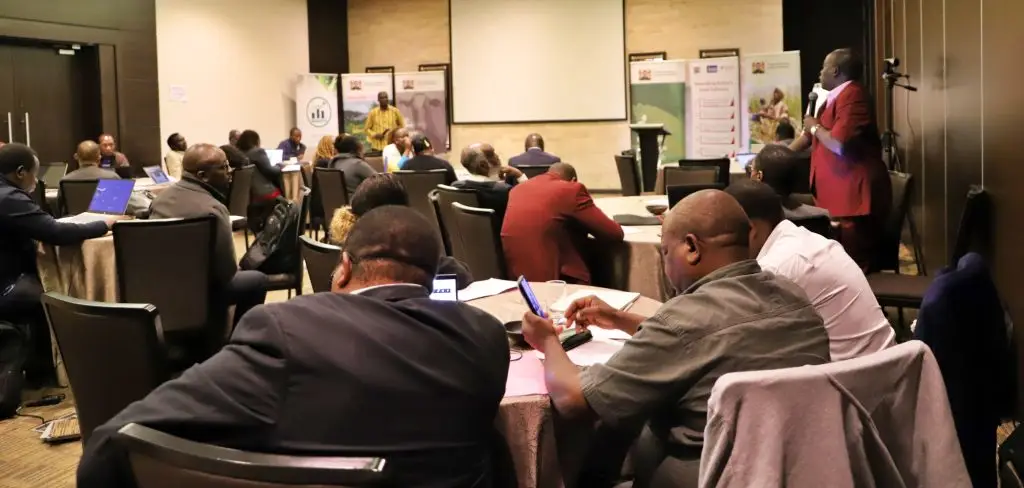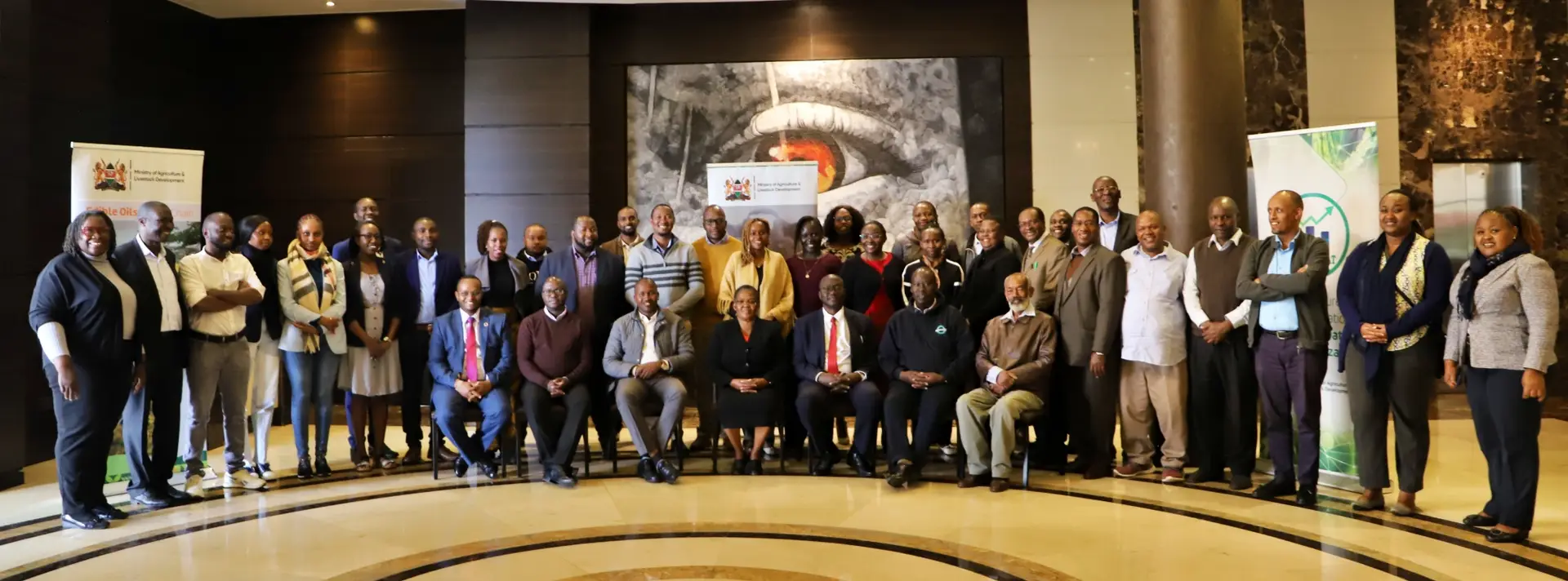Shaping Kenya’s Agricultural Future: Insights from the 5th CAADP Biennial Review 2025 Validation Workshop.
Kenya’s agricultural sector stands at a critical turning point. From July 16–18, 2025, more than 80 agricultural stakeholders gathered in Nairobi and online for the 5th CAADP Biennial Review 2025 (BR) Validation Workshop. The event, hosted by the Ministry of Agriculture and Livestock Development (MOALD) in partnership with GAIN, GIZ, FAO, AGRA, and Retouch Africa Consulting (RAI), was a landmark effort to validate data, strengthen accountability, and accelerate progress toward food security and agricultural transformation.
Why the Biennial Review Matters;
The CAADP Biennial Review 2025 is more than a report—it is a blueprint for agricultural transformation. By tracking progress under the Malabo Declaration commitments (2014–2025), the review ensures African nations remain accountable in their commitments to end hunger, reduce poverty, boost trade, and build resilience. For Kenya, this workshop was an opportunity to turn agricultural data into actionable policy.
As Kennedy Okech (GIZ/ARD Donor Group) put it:
“The Biennial Review is not just a report; it’s a national call to action, a blueprint for transformation.”
Workshop Objectives
Participants—representing government, counties, farmer organizations, development partners, and youth networks—focused on:
-
Validating Kenya’s draft 5th BR Report
-
Reviewing agricultural indicators under the seven Malabo Commitments
-
Addressing data gaps with evidence-based solutions
-
Preparing for the upcoming Kampala Declaration (2026–2035)
https://igad.int/igad-hosts-regional-validation-meeting-for-caadp-5th-biennial-review/

What the Data Reveals
The findings painted a sobering picture:
-
7 in 10 Kenyans remain food insecure
-
39.8% live in poverty
-
Kenya is on track in only a few CAADP indicators
Cluster group discussions focused on critical areas including: ending hunger, boosting intra-African trade, halving poverty, enhancing resilience to climate shocks, and increasing agricultural financing.
Key Voices and Perspectives
Several speakers emphasized the urgency of shifting Kenya’s agricultural trajectory:
-
“The youth choose bodaboda over farming not because they hate agriculture, but because it hasn’t been made profitable.” — John Mburu, KNBS
-
“We can’t manage what we don’t measure. Kenya needs credible, real-time, county-driven agricultural data.” — Ruth Okowa, GAIN Kenya
-
“Domesticate the BR at county level. Let data guide resource allocation and policy.” — Dr. Douglas Ouma, Retouch Africa Consulting
Key Recommendations
The workshop produced actionable policy recommendations, including:
-
Institutionalizing County BR Scorecards for accountability
-
Increasing agriculture’s share of the national budget toward the 10% Malabo target
-
Expanding nutrition-sensitive agriculture and youth agribusiness incubation
-
Strengthening AfCFTA compliance and reducing non-tariff trade barriers
-
Scaling up climate-smart insurance and early warning systems
Centering Farmers, Youth, and Women
Equity was a recurring theme. Stakeholders stressed the importance of closing gender and youth gaps in agriculture:
-
Only 10% of land in Kenya is owned by women
-
Youth agribusiness ventures remain severely underfunded
“Donor money should complement—not dictate—our national priorities.” — Dr. Kiplimo Lagat, Nandi County
The Road Ahead
Next steps include peer validation in Naivasha (July 23–24), submission of Kenya’s validated report to the African Union, and development of a Solutions Brief to guide policy and investment. Disseminating findings to grassroots communities will ensure farmers and youth are not left behind in this transformation journey.
A Turning Point for Agricultural Transformation
The 5th CAADP Biennial Review Validation Workshop demonstrated Kenya’s determination to build an inclusive, data-driven, and resilient agricultural future. As the country transitions from the Malabo Declaration to the Kampala Declaration, Kenya’s actions will shape not just its national food systems, but also contribute to Africa’s collective agricultural vision.



